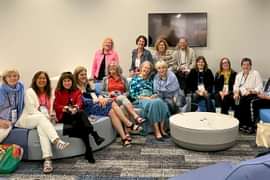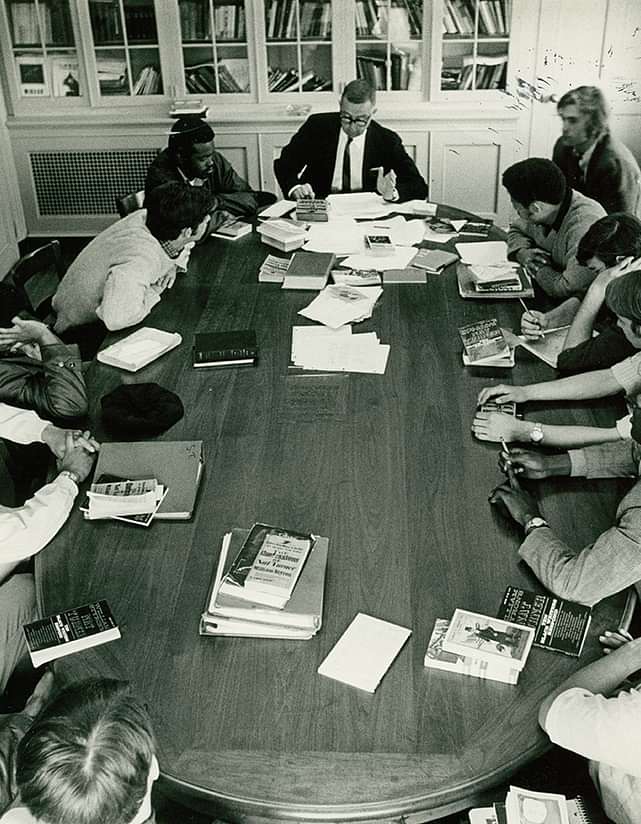
November 12, 2020
Lessons learned
Alums reflect on their most influential Andover instructorsby Allyson Irish
Nearly 20 alumni, spanning all decades, wrote to us with tales of their favorite teachers, life lessons imparted, and fond memories that have stood the test of time.
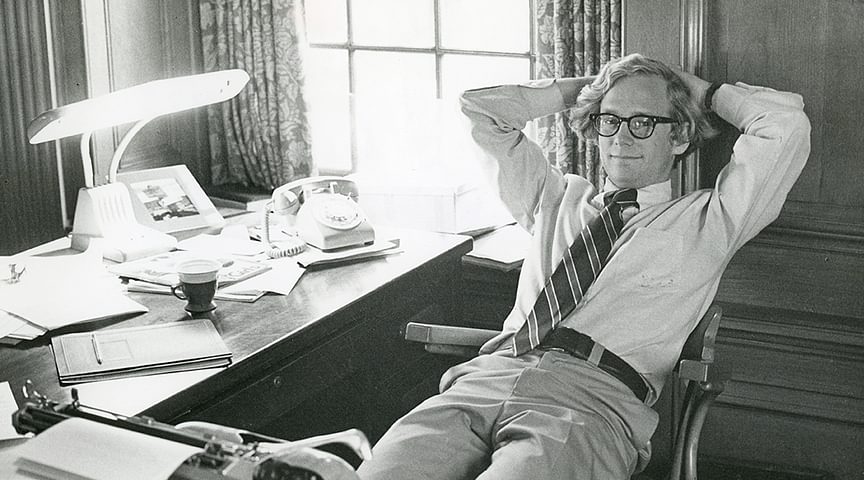
Vic Henningsen ’69 taught History 300 off cycle to the best group during my upper and senior years. We were a diverse group of kids from all the different clusters and friend groups on campus, but in that room, we were a truly close cohort.
Vic had this mesmerizing voice, which made learning about American history interesting and intriguing. We actually looked forward to our “movie night” in the basement of Sam Phil watching Amistad.
The most important thing he taught me was hard work and earning a grade. My upper spring was incredibly personally difficult with the death of my mother; I poured myself into my schoolwork to help cope. I will never forget a comment at the end of spring term from Mr. Henningsen: “Molly earned the lowest possible 5 I have ever given, but mathematically she in fact earned a 5.” This comment might have seemed harsh to some, but to me it meant the world. He knew I had studied; he knew how hard I was trying, and he wanted me to know I had earned it. I was a straight 4 student in history before that; I had never earned an honors grade outside of Spanish or art. Seeing that slide across my desktop meant everything. Vic created a space for us not just to study, but also place to truly learn together.
—Molly Ozimek-Maier ’07
I remember fondly Mr. Maynard, my math teacher during lower and upper years. If we had a “Teaching Hall of Honor”, I would happily nominate him!
”Mr. McQuilken was one of my teachers at Andover (1967-1968). I remember a kind remark he made on my way out of class one day. It had to do with yet another vicious nosebleed; he asked if I worried a lot.
I’d had nosebleeds as long as I could remember. In my freshman year at college, mid-shave, a.m. bleed (hardly a normal time), his words came to mind. I remember looking in the mirror and telling myself, “I don’t care if I flunk out of this school, I’m not going to do it worrying.” Interestingly, that was my last nose bleed.
Two things struck me. The first, on a basic level, that the mind is very powerful relative to the body. More importantly, I’ve come to see that worry is a lack of faith. Rather, God simply isn’t big enough - a tenet to which I don’t subscribe. The application of this knowledge has allowed great things for me and my family.
—Peter G. Hawkins ’69
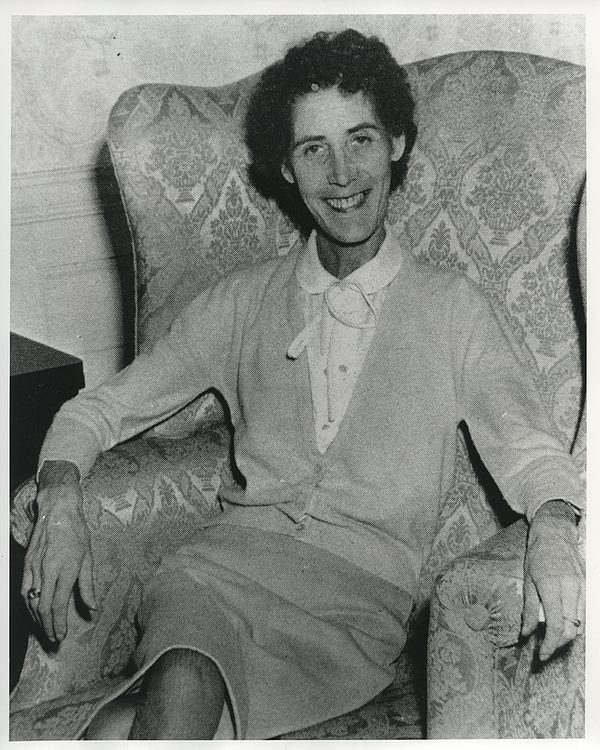 Mademoiselle Baratte
Mademoiselle Baratte
Mademoiselle Baratte was a huge influence on my life. She was a proponent of learning French through learning the culture. She was one of the Abbot teachers who made the trip up the hill to Phillips Academy, to the delight of the gentlemen. There was an air of mystery about Mlle. Baratte, particularly about living through World War II. One of my favorite memories was introducing her to my father, who had served in France during the war. I could barely follow the conversation as they chatted in French, recalling this and that. Such a lovely lady.
—Noreen Markley ’73
I took Middle East Politics with Peter Drench my senior year. On one of my policy briefs, he advised that I should consider pursuing international relations since I had a knack for it. I now work for the Department of State creating and implementing U.S. foreign policy. —Allison Callery ’07
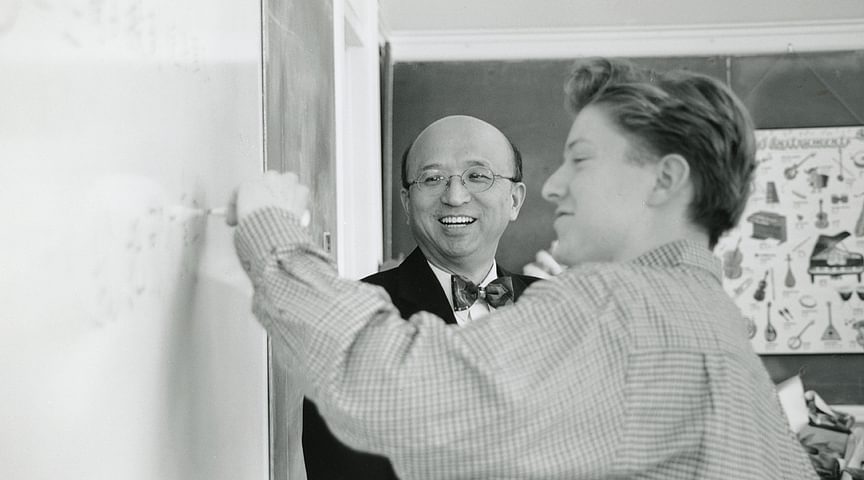
I had the pleasure of taking Mandarin with Dr. Yuan Han all four years at PA. I’m an African American female who arrived at Andover via Washington, D.C. public schools with no background in Asian languages whatsoever. Both family and friends thought I was insane for picking Mandarin, and after I received a 60 percent on my first quiz, I also began seriously doubting the wisdom in that decision.
Dr. Han scheduled a time to speak with me, and I was certain that he would encourage me to switch to a different language. When I sat down with him, he didn’t try to dissuade me from taking Mandarin. He didn’t go over the material that I got wrong on the quiz. Instead, he simply asked how I was adjusting to Andover and if there was anything he could do to help ease my transition. He told me that my issue was self-doubt and a lack of confidence, not a failure to grasp the material. He said, “You made it here for a reason. All the teachers know that, and you should never forget it!”
I went on to do study abroad programs in China; in college I received a minor in Chinese and today in my law practice I handle many of my firm’s U.S.-China litigation matters. Over 20 years have passed since I graduated, and I still hear Dr. Han’s voice in my head when imposter syndrome or insecurities set in. “You made it here for a reason...never forget it!” Dr. Han has no idea how those simple words—and all the support he offered during my time at Andover—has impacted my life.
—Shevon Bengston Rockett ’99
By telling this then-skinny Southern kid from Beaufort, South Carolina, that he should stay on a hill in Massachusetts despite his homesickness, the late, great Jean St. Pierre, teacher at Abbot and later at PA, not only taught me competence from 1987 to 1988, she also made me feel competent enough to remain and thrive on that very same hill. —G. Hamlin O’Kelley III ’90
Jean St. Pierre was my favorite teacher. She wastough, pithy, challenging. A life-long role model.
”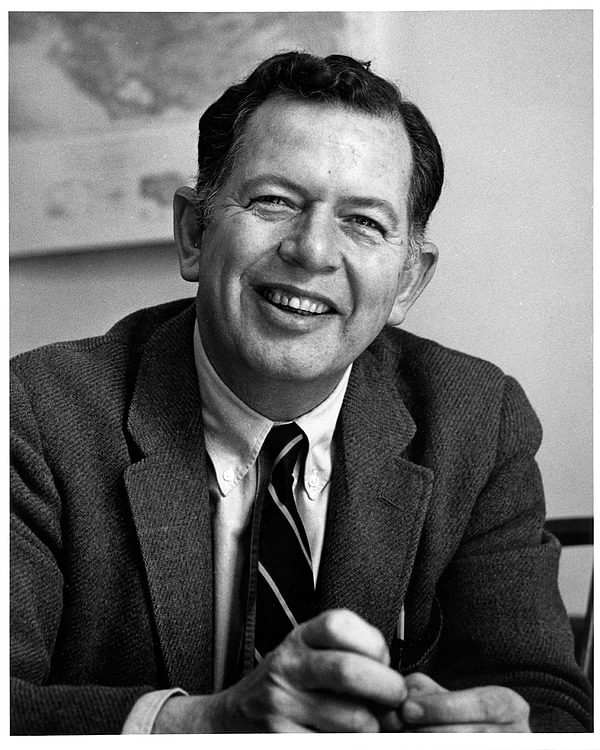 Josh Miner
Josh Miner
Algebra was the bane of my existence when I was 13; it paralyzed me, made me doubt myself. My advisor, Josh Miner, stepped into the void and changed my life. He recognized that there was more in me than I had ever thought possible. "Uncle Josh" helped me to understand that my young brain, through no fault of my own, was not yet wired for abstract thinking and that only by doing word problem after word problem, by “pushing the pencil,” he’d say, would I turn the corner and begin the process of mastering the abstractions. “This terrible weakness, this seeming inadequacy, you feel,” he had written in a note of encouragement after I’d failed another algebra test resonates to this day,
“this represents your greatest opportunity. Now, push the pencil!” He meant, practice, practice, practice. Do the work. Spend the time. Make the sacrifices. I took this advice to heart; I wouldn’t have lasted at Andover without it.
—Christopher Rokous ’80
The teacher with the most impact on my life was Josh Miner. He helped me love physics, teaching both first year and second year classes. He was also my house master upper year. Whenever I returned for reunions, he and Phebe were friendly and interested in what I was up to.
—Edward “Ted” Bailey ’58
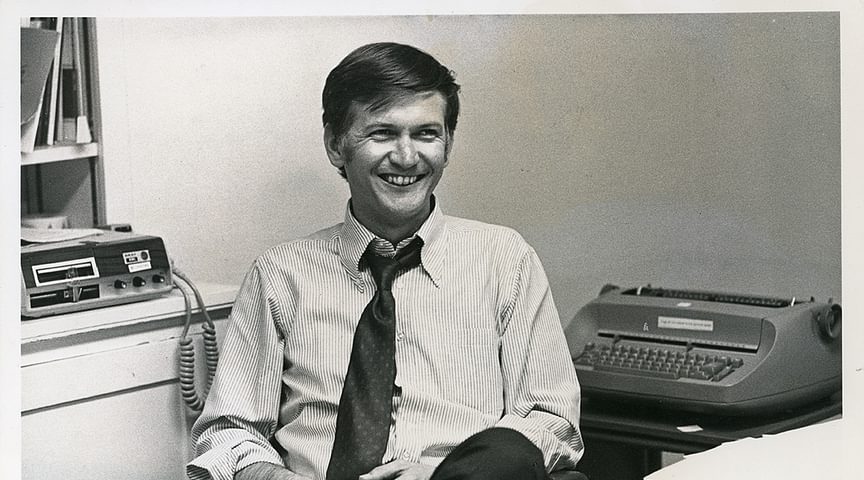
Simeon Hyde Jr. ’37 became the acting headmaster for my upper year (1971-1972) upon the death of headmaster John Kemper. Although I never took an English class from Sim, his speech to the student body that spring—when he announced that a new headmaster had been selected and that he would now retire after a 23-year teaching career at Phillips Academy—left me stunned and impassioned.
Although I never once had a direct encounter with the man, Simeon wasn’t somebody I had deeply admired. I was immature, caught up in a self-image as a jock (really a jock wannabe), and Simeon appeared to be the antithesis of jockdom. He was a dapper little man with snowy white hair who wrote poetry...clearly not the manly persona I was looking to emulate.
His retirement announcement, however, sent my admiration through the roof. Instead of retiring to a life of puttering in the garden and playing bridge, Simeon announced to the student body that, after a lifetime at Andover as a student, teacher, and administrator, he and his wife were moving to Albuquerque, where he would enroll as a student in the University of New Mexico School of Architecture to prepare for a new career as an architect. Not only was he not following the typical and predictable retirement scenario I had presupposed, but he also was about to invest several years of time, effort, and money in preparation for an ambitious new professional career.
His announcement had a major impact on my life. It taught me a lot about prejudging people I don’t really know. It also opened my eyes to the incredible life opportunities that are out there, no matter your age, as long as you have the energy and vitality to seize them.
—Doug Mavor ’73
Matt Lisa was my upper year teacher. Math was never an easy subject for me, particularly in high school, and Mr. Lisa spent many conference periods helping me that year. Having a teacher who was so invested in my success helped me find a voice to be not only a better student, but also a better advocate for my academic needs, a critical lesson for me that built the foundation I needed to succeed in graduate school. —Genevieve Kandler ’04
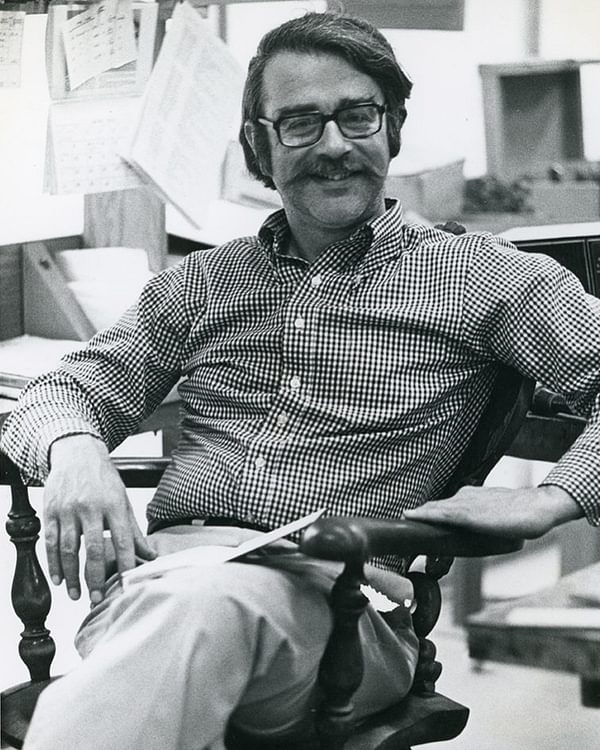 Jerry Schertzer
Jerry Schertzer
I had Jerry Schertzer, sculptor on the Studio Art team, for my lower middle year. I was in awe of him. The previous year he made a Torah Ark for a synagogue somewhere, dripping molten bronze over bronze mesh. It took your breath away.
I had built a model airplane from a kit that summer, tissue paper over balsa frames, moistened to form taut complex curves. In the studio I tried to make an abstract balsa framework covered with colored tissue. It ended up looking like a church stained glass window, and at that time I rejected church and religion. I wanted to trash the piece.
I said to Jerry, “After all, if something’s worth doing, it’s worth doing well.” And he fired back, “If it’s worth doing, it’s worth doing badly.” That moment made a lifelong impact.
—Punch Olivier ’72
The most important teacher I had at Andover was Kelly Wise, whose Novel & Drama seminar (1971-1972) was the class that taught me—finally—how to read, how to write, and how to think. I owe so much to that special class, to Kelly, and to the other students who took it with me for exploring the literary art deeply and passionately. —David Schwartz ’72
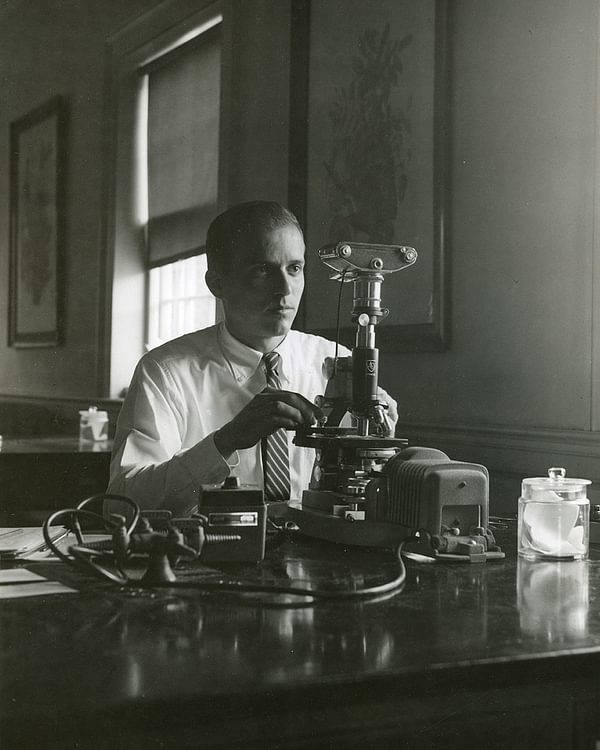 John Kimball
John Kimball
In 1962-1963, I was one of nine students enrolled in John Kimball's college-level course, Biology X. It was the single most impactful course I took at Phillips Academy or during my seven years of higher education thereafter.
Biology X met for nine hours each week: five classroom hours and four hours of lab. Each week Mr. Kimball handed out a mimeographed chapter of the textbook he had drafted, and we handed them back each week with margin notes identifying anything that seemed confusing or needed more explanation.
Mr. Kimball led us through a yearlong discovery of the life sciences, encouraging our curiosity and sharing his own enthusiasm for the subject. Each of us completed an extended project, building our awareness and appreciation for research, experimentation, and careful conclusions. At year’s end, we all received top-level scores on the SAT achievement and college Advanced Placement tests.
—Dick Howe ’64
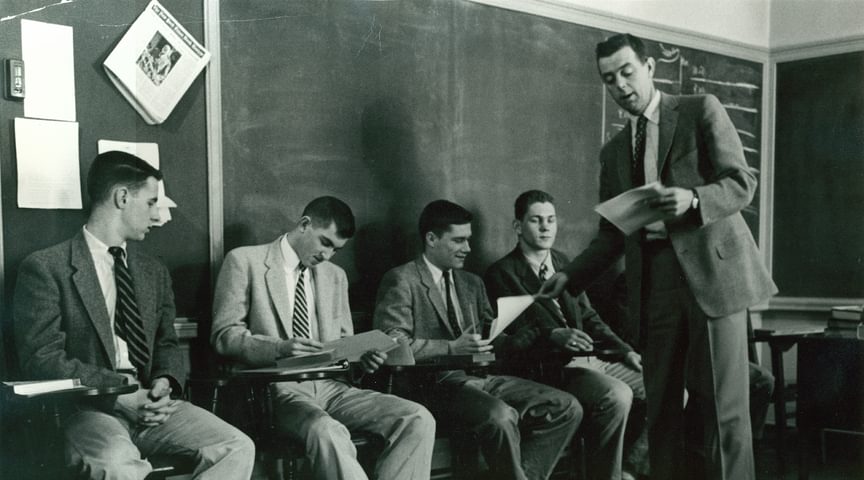
Bill Brown was my first-year English teacher. He taught by example and always went the extra lap. The first in-class writing assignment was to take 20 minutes and describe how to cut a piece of string into three equal parts. I finished quickest with a simple solution. From then on, he took an interest in me and for four years checked on me to make sure that I stayed on the right track.
Fresh from Bay Shore High School, Long Island, and a wee bit cocky, I entered PA to repeat my freshman year. I had high Regents scores, and was co-captain of the freshman football team, starting guard on the freshman basketball team, catcher on the freshman baseball team, second doubles on an undefeated varsity tennis team, plus girls were becoming less of a mystery! Veritably invincible, a legend in my own mind, I spent more time in the first marking period learning the plays for the football team than I spent hitting the books.
Bill Brown’s caring, his skills in the classroom, and his record in WWII resonated with me as I grew older. His teaching about brevity and observation—“seeing the forest through the trees,” and then translating succinctly what you saw into a word picture—all comes flashing back.
—George Rider ’51





